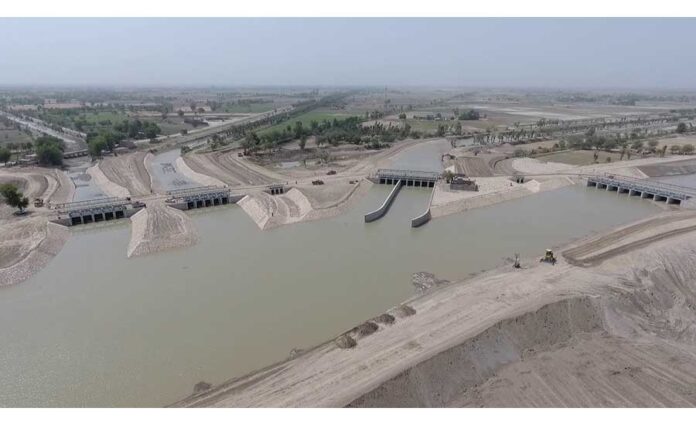The World Bank has rated the overall implementation progress of the Sindh Water and Agriculture Transformation (SWAT) project as moderately unsatisfactory.
The $300 million project aims to increase agricultural water productivity in selected farmers’ organization command areas, improve integrated water resources management, and support recovery of crop production by small and medium-sized farmers affected by the 2022 floods.
The World Bank’s Implementation Status and Results Report also rated the progress toward achieving the project’s development objectives as moderately satisfactory. The project was approved in December 2022.
According to official documents, implementation is moving forward on multiple fronts, though with some delays. Underwater resources, the design of the Hydro-Agro Informatics program by the Irrigation and Agriculture departments is in progress.
Implementation of core activities is expected to begin in 2026 after the design phase is completed.
A first draft of a new water resources bill has been prepared and is currently under review by the Irrigation Department. The Sindh Law and Parliamentary Affairs Department is expected to submit it to the Sindh Provincial Assembly.
The bill is intended to replace the Irrigation Act of 1879 and the Sindh Water Management Ordinance of 2002, creating a unified legal framework for integrated water resource management and irrigation services.
The Sindh Irrigation Department is also conducting a water pricing reform study and plans to increase Abiana rates based on its findings. This study will be aligned with the ongoing Federal Water Pricing Study.
In the area of farmer organization sub-projects, the Irrigation and Agriculture departments are working with three pilot organizations to develop area development plans. These plans will identify priority investments in irrigation and agriculture.
Procurement activities for the Akram Wah Rehabilitation sub-project are underway, with contract awards expected in early 2026.
The Agriculture Department is advancing work on crop reporting, soil salinity management, and value chain development. Discussions on wheat monitoring and agricultural research policy are ongoing.
Payments under the Flood Emergency Response Component are expected to conclude in 2025.
Area Development Plans for the three pilot farmer organizations are under preparation. Subproject assessment reports will evaluate changes in agricultural surface water productivity, measured as crop revenue divided by the total volume of surface water supplied in rupees per cubic meter.




